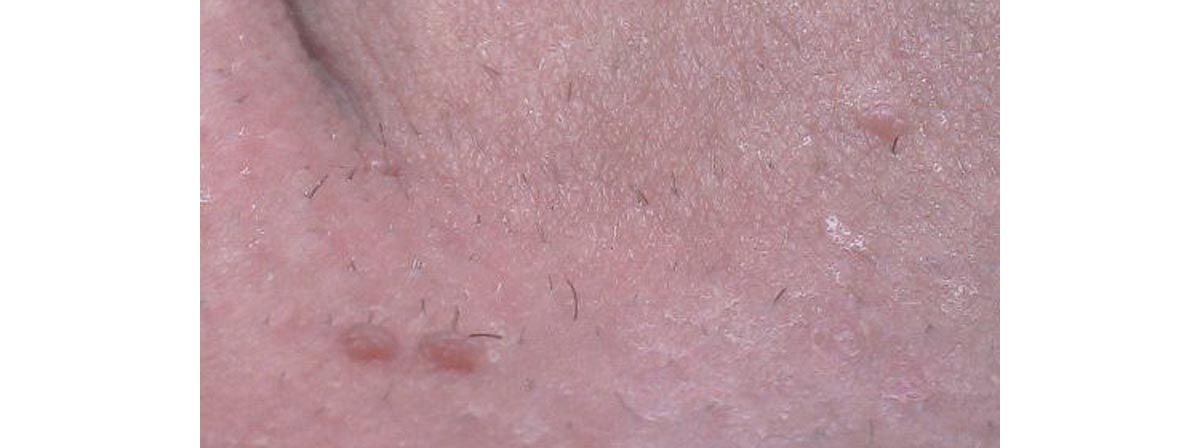Table of Contents
Once you have been diagnosed with genital warts, you have several treatment options. The route you choose is going to depend on your personal circumstances. We'll take a look at your options, and discuss the pros and cons of each treatment.

Waiting For Your Body To Clear The Warts
Your immune system will try to fight the type of HPV that caused your genital warts, so it is possible that your body will get rid of the virus and the warts by itself. Some people who have genital warts therefore choose not to undergo a medical treatment of genital warts. Instead, they may try to boost their immune system by consuming plenty of vitamin C and eating a very healthy diet.
Waiting for your body to clear the HPV out of your system may be a good option for you if you are currently single and not having sex. People who know they have genital warts should take extreme precautions when it comes to sexual contact with anyone else, because they may transmit the HPV. If you're pregnant, waiting is also not a good idea. In some cases newborns can become infected with HPV and end up with genital warts in their throat, which can be dangerous.
Natural Treatments
Genital warts, a manifestation of the human papillomavirus, can be an uncomfortable and distressing condition for many. While modern medicine provides a range of effective treatments, some individuals gravitate towards natural remedies, seeking holistic and less invasive approaches. In the realm of botanicals and natural substances, several have been purported to offer relief or even potential resolution for this ailment.
Below, we explore some of these revered natural treatments:
-
Tea Tree Oil: Derived from the leaves of the Melaleuca alternifolia plant, tea tree oil has antiviral and antiseptic properties. It can be applied diluted to the affected area, but caution is needed as it can be irritating to the skin.
-
Green Tea Extract: Sold as a prescription ointment under the name Veregen, this is a botanical product approved for treating genital warts. Its active ingredient, sinecatechins, is believed to have an antiviral effect.
-
Apple Cider Vinegar: Some claim that applying apple cider vinegar to warts can help dissolve them. However, it can be very irritating and might cause burns, especially on sensitive genital skin.
-
Garlic: Allicin, a compound found in garlic, is believed to have antiviral properties. Some people crush garlic cloves to form a paste and apply it to warts, although this can be irritating to the skin.
-
Echinacea: Known for its immune-boosting properties, Echinacea can be consumed as a tea or supplement. While it may not directly treat the wart, it might help bolster the immune system to combat HPV, the virus causing the warts.
Creams To Remove Genital Warts
Several topical creams are available to treat genital warts. These usually require a prescription, so you'll have the opportunity to discuss the pros and cons of different treatments with your healthcare provider. Common topical treatments are:
-
Podofilox, which is available as a gel or a solution. You'll apply this at home twice daily for three days, and then observe a four-day rest period. You can use Podofilox up to four of these cycles. It may not be safe during pregnancy.
-
Imiquimod is applied once daily three times a week, for a maximum of 16 weeks. Patients have to wash the treatment area six to 10 hours after they applied the treatment, and they should be aware that the treatment can affect the efficacy of condoms and diaphragms. Once again, this treatment has not been proven to be safe during pregnancy.
-
Sinecatechin can also be used for up to 16 weeks, but patients need to apply apply it three times daily and don't wash it off. This treatment is not suitable for those who are HIV positive, have genital herpes and... you guessed it, those who are pregnant.
Freezing, Burning, And Surgically Removing Genital Warts
Freezing the warts with liquid nitrogen (cryotherapy), burning, and surgically removing genital warts have a definite advantage: warts can be eliminated fairly quickly. Different options may be available to you depending on where you live, but it's clear that all of these treatments need to be carried out by skilled professionals such as OBGYNs. Patients will generally receive local anesthesia to have these procedures done, but may experience considerable discomfort afterwards.
This last category of treatment is particularly suitable for pregnant women — and their partners, since you don't want to be reinfecting either other. Genital warts are also, unfortunately, more likely to recur quickly during pregnancy, because of a weakened immune system. The same holds true for people who are HIV positive. If warts reappear, you may need another round of treatment.
- genital-warts.jpg
- farm4.staticflickr.com/3559/3453081767_fb444d9859.jpg
- Photo by steadyhealth.com
- Photo courtesy of Rrreeewww by Wikimedia Commons : commons.wikimedia.org/wiki/File:Feigwarzen.jpg

